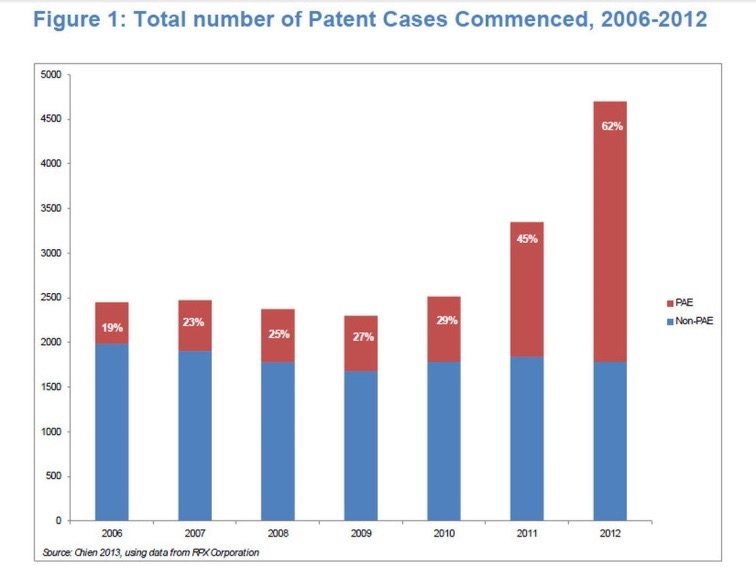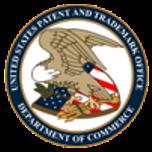Washington, D.C. — The U.S. Department of Commerce recently released a green paper on Copyright Policy, Creativity, and Innovation in the Digital Economy (the “Green Paper“) to advance discussion on a set of policy issues critical to economic growth. The Green Paper discusses the goals of maintaining an appropriate balance between rights and exceptions as the law continues to be updated; ensuring that copyright can be meaningfully enforced on the Internet; and furthering the development of an efficient online marketplace.
The Green Paper is the most thorough and comprehensive analysis of digital copyright policy issued by any administration since 1995. The report is a product of the Department of Commerce’s Internet Policy Task Force (“IPTF”) with input from the U.S. Patent and Trademark Office (“USPTO”) and the National Telecommunications and Information Administration (“NTIA”). Through the IPTF, the USPTO and NTIA will solicit further public comments and convene roundtables and forums on a number of key policy issues.
“Copyright law strikes a number of important balances in delineating what is protectable and what is not, determining what uses are permitted without a license, and establishing appropriate enforcement mechanisms to combat piracy, so that all stakeholders benefit from the protection afforded by copyright,” said U.S. Secretary of Commerce Penny Pritzker. “Ensuring that our copyright policy provides incentives for creativity while promoting innovation on the Internet is a critical and challenging task. The Green Paper released today is an important step toward ensuring that the United States’ creative industries continue to have a substantial impact on strengthening our nation’s economy.”
Copyright has been a vital contributor to U.S. cultural and economic development for more than two hundred years, fostering the production and dissemination of the valuable expression that has put America at the forefront of the global creative marketplace. Maintaining a balanced and effective copyright system should continue to drive the production of creative works while at the same time preserving the innovative power of the Internet and the free flow of information. The Green Paper provides a comprehensive review of current policy related to copyright and the Internet, and identifies important issues that call for attention and development of solutions. The solutions may entail a combination of legal remedies, technology, private sector cooperation, and public outreach and education, along with the continued development of options to legally access copyrighted works.
In the Green Paper, the IPTF proposes the following actions:
· Establishing a multi-stakeholder dialogue on improving the operation of the notice and takedown system under the Digital Millennium Copyright Act (“DMCA”).
· Soliciting public comment and convening roundtables on:
o The legal framework for the creation of remixes;
o The relevance and scope of the first-sale doctrine in the digital environment;
o The application of statutory damages in the context of individual file-sharers and secondary liability for large-scale online infringement;
o The appropriate role for the government, if any, to help improve the online licensing environment, including access to comprehensive public and private databases of rights information.
“Copyright protection is a foundation for creative services and products that drive a significant part of the U.S. economy,” said Acting Under Secretary for Intellectual Property and Acting USPTO Director Teresa Stanek Rea. “The Internet must continue to support a legitimate market for copyrighted works as well as provide a platform for innovation and the introduction of new and dynamic services that drive digital commerce.”
“We see a digital future in which the relationship among digital technology, the Internet, and creative industries becomes increasingly symbiotic,” said Assistant Secretary of Commerce for Communications and Information and NTIA Administrator Lawrence E. Strickling. “In this digital future, the rights of creators and copyright owners are appropriately protected; creative industries continue to make their substantial contributions to the nation’s economic competitiveness; online service providers continue to expand the variety and quality of their offerings; technological innovation continues to thrive; and consumers have access to the broadest possible range of creative content.”
The Green Paper reiterates the Administration’s support for legislation creating a public performance right for the broadcasting of sound recordings and enabling prosecutors to seek felony penalties for unauthorized streaming to the public. It supports congressional or regulatory attention to determine how best to rationalize rate-setting standards for different types of music services; reform music licensing, particularly the mechanical license for musical compositions; and ensure consumers can unlock their cell phones, subject to applicable service agreements. It supports the U.S. Copyright Office’s work to address the problems of orphan works and mass digitization, consider possible small-claims procedures, update the statutory exception for libraries, and improve public registration and recordation systems. The Green Paper also supports and encourages enhancing public education and outreach efforts.
With respect to the difficulties in enforcement against websites dedicated to infringement, the Green Paper encourages ongoing voluntary initiatives, such as those facilitated by the U.S. Intellectual Property Enforcement Coordinator (“IPEC”), that benefit all parties and are consistent with the principles of privacy, free speech, competition, and due process, and states that the IPTF will follow these developments and assess their impact in order to determine whether additional action is needed. The USPTO has also extended its request for comments regarding the processes, data metrics, and methodologies that could be used to assess the effectiveness of cooperative agreements and other voluntary initiatives to reduce intellectual property infringement. This comment solicitation is part of the Administration’s 2013 Joint Strategic Plan for Intellectual Property Enforcement.
Then-Secretary of Commerce Gary Locke launched the IPTF in April 2010, bringing together the USPTO and NTIA, as well as the International Trade Administration (“ITA”), the National Institute of Standards and Technology (“NIST”), and the Economic and Statistic Administration (“ESA”) to conduct a comprehensive review of privacy policy, copyright, global free flow of information, cybersecurity, and their respective relationships to innovation in the Internet economy. In preparing the Green Paper, USPTO and NTIA held more than a dozen listening sessions with interested stakeholders, convened a symposium, received hundreds of public comments, and reviewed comments submitted to other agencies on relevant topics. The IPTF will consider feedback it receives from public comments, roundtables and forums to determine how the current copyright framework can be improved to serve creators, right holders, service providers, consumers, innovation, and national economic goals.
The Green Paper can be found online at: http://www.uspto.gov/news/publications/copyrightgreenpaper.pdf.
Practice Tip: Among the issues to be considered as part of this initiative, public comment will be solicited regarding the application of statutory damages in the context of individual file-sharers. This subject has created a considerable range of response from the judiciary. On one end of the spectrum are opinions, for example, one citing a “disturbing trend of internet piracy“ and another which assessed statutory damages of $150,000 in an illegal-downloading case in which the defendant did not appear to answer the allegations of infringement.
On the other end of the spectrum are opinions such as Judge Otis Wright’s scathing indictment of copyright trolls. In Judge Wright’s opinion, he details the abuse of the legal process committed under the authority of The Copyright Act. In the now-famous “Star Trek”-themed order, Judge Wright began by opining, “Plaintiffs have outmaneuvered the legal system. They’ve discovered the nexus of antiquated copyright laws, paralyzing social stigma, and unaffordable defense costs. And they exploit this anomaly by accusing individuals of illegally downloading a single pornographic video. Then they offer to settle–for a sum calculated to be just below the cost of a bare-bones defense. For these individuals, resistance is futile; most reluctantly pay rather than have their names associated with illegally downloading porn. So now, copyright laws originally designed to compensate starving artists allow, starving attorneys in this electronic-media era to plunder the citizenry.”
Among other measures in this case, the Court awards attorney’s fees and costs in the sum of $40,659.86 to the defendant. It then, as a punitive measure, doubled the award, yielding $81,319.72.
Judge Wright later concluded with an explanation for the sanctions which he was imposing against the attorneys in the case, “though Plaintiffs boldly probe the outskirts of law, the only enterprise they resemble is RICO. The federal agency eleven decks up is familiar with their prime directive and will gladly refit them for their next voyage. The Court will refer this matter to the United States Attorney for the Central District of California. The will also refer this matter to the Criminal Investigation Division of the Internal Revenue Service and will notify all judges before whom these attorneys have pending cases. For the sake of completeness, the Court requests [defense counsel] to assist by filing a report, within 14 days, containing contact information for: (1) every bar (state and federal) where these attorneys are admitted to practice; and (2) every judge before whom these attorneys have pending cases.”
Continue reading
 Indiana Intellectual Property Law News
Indiana Intellectual Property Law News




